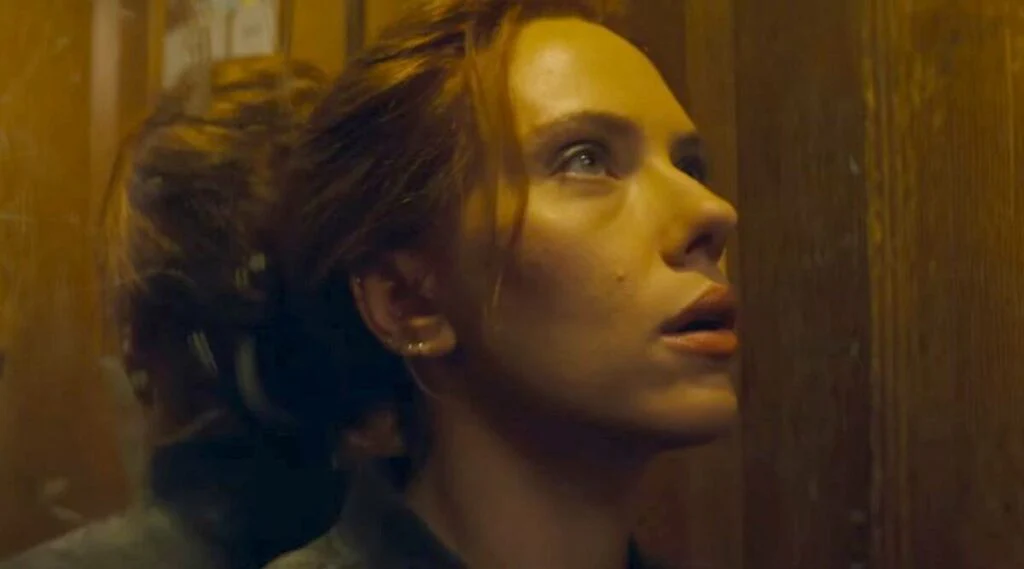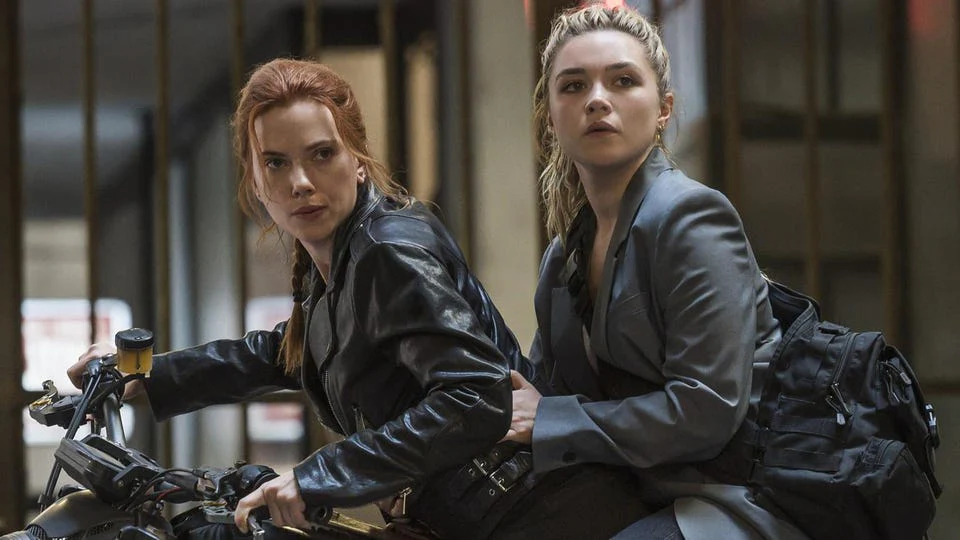It is a good bit insulting that someone like Scarlett Johansson, one of the most prominent and talented actors working today and someone who’s had very little trouble leading her own action blockbusters, never properly received her own solo movie throughout her seven appearances as Avenger Natasha Romanoff in the Marvel Cinematic Universe. It’s a mistake that’s only being corrected just now, over a decade after first commanding the screen as the character in Iron Man 2 and two years since she met her end on the mission to save the universe in Avengers: Endgame. Some may consider it too little too late, but with Black Widow finally here after numerous pandemic-related delays, it does thankfully not only showcase Johansson’s starpower and action prowess, but also fleshes out Natasha to make her feel like a much richer and layered character with her own enthralling story to tell.
The film is predominantly set between the events of Captain America: Civil War and Avengers: Infinity War, with the superhero team disbanded and Natasha alone and on the lam. But the film’s opening shows us a much younger Natasha (Ever Anderson) and her upbringing in an unassuming, seemingly average and loving family with her father Alexei (David Harbour), her mother Melina (Rachel Weisz), and her younger sister Yelena (Violet McGraw). This illusion of domestic bliss is shattered when the girls’ parents, revealed to be Russian spies, complete their undercover mission and flee the country with the children in tow. Once they arrive at a rendezvous site and report to General Dreykov (Ray Winstone), Natasha and Yelena are torn from each other’s arms to be trained and indoctrinated in the Red Room, where they’ll be molded into skilled and unfeeling killers - Black Widows.

Courtesy of Marvel Studios
Directed by Cate Shortland, things kick off in a more intense and emotionally visceral way than Marvel audiences may be accustomed to, largely due to the tragedy of the sisters’ young ages and the way we witness their heartbreaking and traumatic separation. The MCU has had its fair share of hefty themes and implications before, but certain elements of Black Widow - like how its plot centers around a literal child trafficking operation, specifically of young girls, run by a wealthy and self-serving man who literally strips them of their reproductive anatomy - feel a bit more mature and piercing than most, even if the film can’t bring itself to explore them too deeply. We’ve still gotta sell this to families, after all.
But the impact of what's there is still felt; the film has a lingering sadness about it, an emotional goldmine of trauma and found family that Marvel hasn’t hit as well since James Gunn’s Guardians of the Galaxy. Decades later, the adult Natasha and Yelena (Florence Pugh) are now free of Dreykov’s control but still hold the scars of what they did and the life that was taken from them. Despite their contrasting views on how they carry themselves (Yelena mocks her sister’s flashy heroics and contrasts herself as someone who’s “not the killer that little girls look up to”), once the two reunite, they agree to take down the Red Room for good. Up against an army of other Black Widows and a relentless adversary named Taskmaster (Olga Kurylenko) who can copy their every move, the sisters will have to rely on each other and enlist the help of their beyond questionable parents if they hope to succeed.

Courtesy of Marvel Studios
Black Widow is one of the more consistently action-packed entries in the franchise, and with its titular heroine the sole member of the Avengers without any magical powers, superstrength, or fancy arrows, the film’s action sequences of hand-to-hand combat, knife fights and car chases feel (for the most part) more grounded and fierce than usual. Every kick and flip feels like it has speed and force behind it, and while you wish the film would indulge itself at least once with a longer take where the choreography and physical performances could shine brighter, the stunts remain impressive and evoke the work of similar spy epics, most notably a scene involving a snowy prison escape. But that bit of fantastical and heightened reality of the MCU does still remain, so the film’s several attempts at reminding us that Natasha is just a regular human and not a superhero don’t exactly carry much water when we’re shown her surviving various things that should definitely kill someone - or at least leave them with some debilitating injuries - without a fuss.
Yet Natasha herself (and in turn, Johansson) feels like she’s given her due thanks to a now fully realized backstory and a relationship with the other characters that emphasizes her distant but deeply caring nature. The pain and regret of her life is what drives her current commitment to good deeds; a self-imposed selflessness that this film uses as its climactic moment that’s both a triumphant and defining bit of characterization as well as a precursor to her sacrifice in Endgame. Natasha’s calculated and soft-spoken demeanor is offset by Yelena’s penchant for constant sarcasm and confrontation, and the fun dynamic between the two has Pugh nearly steal the show thanks to a hardened but still vulnerable performance that Marvel is clearly banking on for future films. Harbour and Weisz also bring some notable depth to their side of things, even if some aspects of their characters and how they fit into the film’s larger ideas seem muddled - especially Alexei’s.

Courtesy of Marvel Studios
In fact, several questions brought up by Black Widow’s plot feel unanswered by the movie’s end, and whether or not they’ll be resolved in future MCU installments doesn’t help the vagueness in which certain story threads are presented. The way the film jumps around the timeline in order to fit into its place in the greater MCU can also be frustrating - you almost wish it was just a straightforward origin story set before Natasha ever joined up with the Avengers. With a few minor tweaks it could’ve certainly been made that way, but that’s more of a testament to how the film manages to come across as a true standalone adventure - where you don’t necessarily need to be in the know of the dozens of other Marvel movies and shows - more than anything.
The film may not be one of Marvel’s very best, but it shows that the studio still has the ability to wow audiences on the big screen (and judging from early Disney+ numbers, people don’t seem to mind the at-home experience either) and find ways to both expand the greater universe and tell a self-contained story with excitement and nuance. The superhero bubble has to burst eventually, but Black Widow reassures fans that it’s not happening just yet. There’s still some surprisingly enthralling stories to tell.
'Black Widow' is now playing in theaters and streaming on Disney+ Premier Access.




